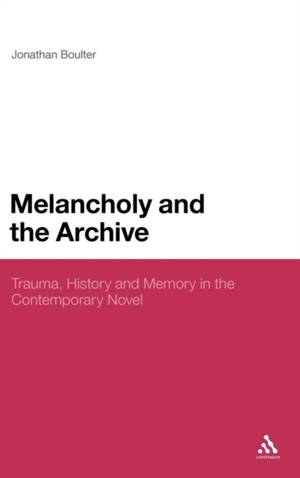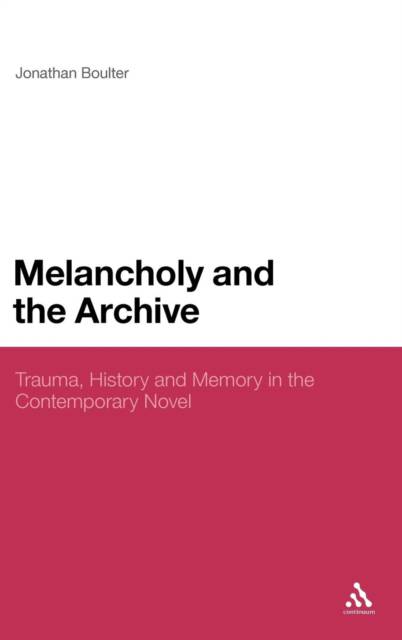
- Afhalen na 1 uur in een winkel met voorraad
- Gratis thuislevering in België vanaf € 30
- Ruim aanbod met 7 miljoen producten
- Afhalen na 1 uur in een winkel met voorraad
- Gratis thuislevering in België vanaf € 30
- Ruim aanbod met 7 miljoen producten
Zoeken
Melancholy and the Archive
Trauma, History and Memory in the Contemporary Novel
Jonathan Boulter
Hardcover | Engels
€ 296,95
+ 593 punten
Uitvoering
Omschrijving
Melancholy and the Archive examines how trauma, history and memory are represented in key works of major contemporary writers (David Mitchell, Paul Auster, Haruki Murakami, Jose Saramago). The book explores how these authors construct crucial relationships between sites of memoryGÇöthe archive becomes a central trope hereGÇöand the self that has been subjected to various traumas, various losses. The archiveGÇöbe it a bureaucratic office (Saramago), an underground bunker (Auster), a geographical space or landscape (Mitchell) or even a hole (Murakami)GÇöbecomes the means by which the self attempts to preserve and conserve his or her sense of history even as the economy of trauma threatens to erase the grounds of such preservation: as the subject or self is threatened so the archive becomes a festishized site wherein history is housed, accommodated, created, even fabricated. The archive, in Freudian terms, becomes a space of melancholy precisely as the subject preserves not only a personal history or a culture's history, but also the history of the traumas that necessitates the creation of the archive as such.
Specificaties
Betrokkenen
- Auteur(s):
- Uitgeverij:
Inhoud
- Aantal bladzijden:
- 224
- Taal:
- Engels
Eigenschappen
- Productcode (EAN):
- 9781441124128
- Verschijningsdatum:
- 21/07/2011
- Uitvoering:
- Hardcover
- Formaat:
- Genaaid
- Afmetingen:
- 156 mm x 234 mm
- Gewicht:
- 485 g

Alleen bij Standaard Boekhandel
+ 593 punten op je klantenkaart van Standaard Boekhandel
Beoordelingen
We publiceren alleen reviews die voldoen aan de voorwaarden voor reviews. Bekijk onze voorwaarden voor reviews.











